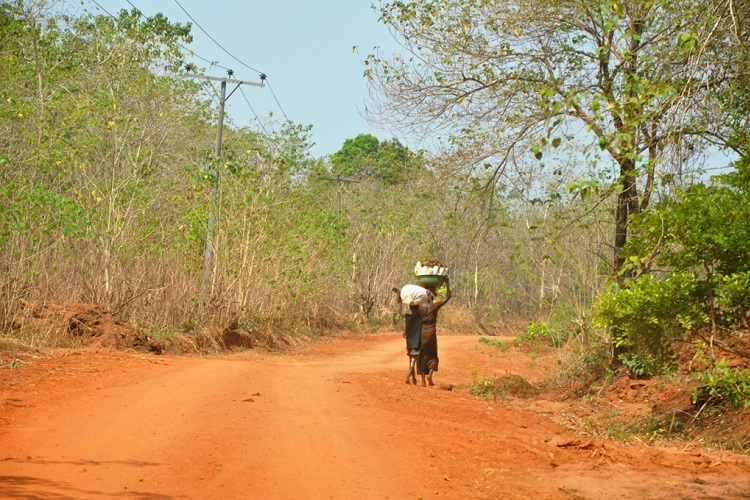Have you ever been to a Nigerian village or let me say a staunch farm settlement? It is interesting to see and experience farmers’ lifestyles, the food, houses, work routine, and dressing, activities, or jobs they engage in living in their communities.
After visiting and residing in different farm settlements for assignments across 5 southwestern states of Nigeria, I found out the majority of farmers live a simple but nonchalant lifestyle as long as they are in their villages or settlements.
I prefer to refer to these communities as farm settlements because all those who live in the communities are farmers except for a few vendors. These are areas you may not find on the google map. Only a few bike men in neighboring major towns know these places as the majority of the roads are not motorable. Some are far from the nearest big towns by about 30 minutes to an hour or more. The majority of the roads are untarred and dusty. Some of them are small while some are big communities with between 20 to 100 households or more.
Work and Dress Mode
80% of the houses in villages I visited were built with mud, some call it clay houses. The populace don’t care about dressing nice, that because majority of the time there are tasks for them to engage in almost every day or hour. For work, you will be surprised to see a farmer in these areas putting on the same cloth for a week or more consecutively, and some of the clothes very dirty and smelly. One day’s intense work can make their cloth dirty and they think there isn’t a need to wash or change the cloth since they only came home to rest and resume work the next day. Sincerely, even a walk of about an hour or more from the farm back home is enough stress.
Food and Water
They mostly eat what they produce and consider getting some food items from nearby towns. 70% of the settlements I visited get water from the stream to cook and sometimes drink. Only a few places have well water (ground water) and some with pipe-borne water.
Most times in some communities, some residents only bath at night or late in the evening in the streams. I also took my bath in streams of about 3 communities throughout my stay there. It was scary though, but we bath in groups of 3-5 which includes my team and village residents. I washed my clothes and brushed my teeth with the water.
Healthcare
Most areas don’t have any medical facility close by. 90% of the communities I visited don’t have any hospital or clinic and the nearest ones I saw were about 20 minutes to over an hour ride on a bike. But there were drug vendors who occasionally visit.
Adults to Children Ratio
Those who live there are mostly adults and some youth making around 85%, and children around 15%. Most children getting to adolescence go to live with relatives in bigger towns or cities to school or learn a skill.
Basic Facilities
80% of those I visited were without government electricity and if there is, it might be solar powered by just a few members of the area. 85% without schools, hence low level of education. Majority cannot read or write. Roads are not tarred and about 80% of them can only be accessed through a bike.
Interpersonal Relationship
I discovered the village populace share belongings with each other. They know themselves because it’s usually a small community while some are bigger which serve as a support system for themselves. They know who their friends and neighbors are, even those in neighboring communities. Whenever a stranger enters a community, be sure that all eyes will be on that stranger. You might be scared of the kind of audience your presence attracts.
A General Concern about State of Farmers
A major concern about the farmers is that an average Nigerian farmer portrays an undesirable and pitiful image. He is poor, old, and bent due to intense labour usually caused by the continuous use of obsolete implements like the cutlass and hoe.
However, many farmers are not in this condition. In my next post, I will discuss the categories of rural livelihoods explaining those who belong to each category and what they do.



